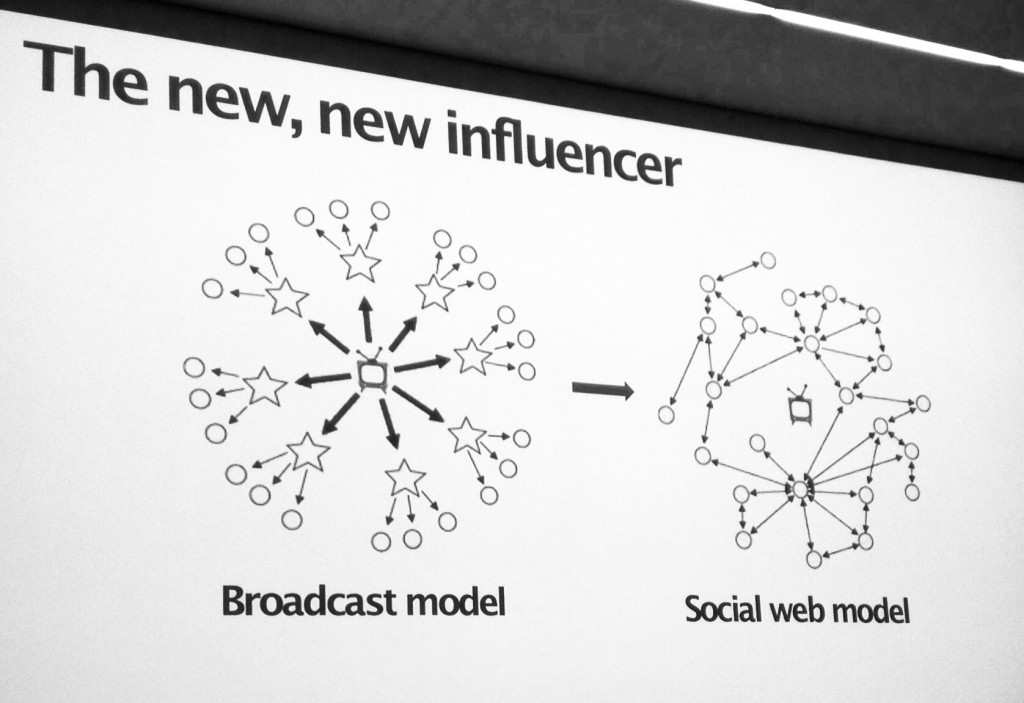We all like to be inspired by what others are doing; seeing what someone else is doing helps us understand ourselves better.
The stories that have the biggest impact resonate with us in some way. We relate to what is being said yet at the same time the different frame of reference helps us to see from a new perspective.
To help ourselves and others learn and grow, we all need to be a little braver and explore ways to share our perspectives, thoughts and experiences so they inspire and motivate others to bring about the changes we all need.
The art of storytelling
Sharing our experiences in a way that motivates others means telling a story that relates to something people already understand. Publishing is no longer the preserve of professional journalists. With social networking tools, smartphones, tablets, and free or cheap audio and video editing software, we are all mobile storytellers.
Technology is here to help us move away from corporate blandness toward celebrating the individuality of real people and real lives. Authenticity. Transparency. Trust. To me sharing real, inspiring stories on the web is what online journalism is all about.
The challenge of course, when technology previously the preserve of the few becomes available to the masses, is that the skills and knowledge that goes behind how to use it takes a while to catch up.
This is why there is so much ‘noise’ on Twitter and YouTube. We’re in the experimentation stage. We’re all learning how to drive this thing; there is no manual (apart from our gut instincts) and there’s no standard or quality control board. What you produce is only as good as it’s value to others. The better your content is at helping others understand and find themselves, the more valuable, and hence shareable, it becomes.
As part of my Online Journalism course, I’ve been learning how to tell stories with audio and video. I’ve never done this before, but the technology, particularly the £3 iMovie software for iPad /iPhone makes the process so much fun. In true Blue Peter style, here’s two I made earlier:
1) The Future of Highways Data
2) A Journey to Reunion, a video tribute to the healing power of my Nan and Grandad’s love for each other and everyone the met, bringing adopted and blood families together on my Grandad’s 100th birthday.
Be brave, be you
Some will judge and criticise our efforts, that’s OK. If you’re really comfortable about translating and sharing what you’re doing in a way that’s valuable for others, then you’re doing what you were meant to do, and that can never be wrong.
Conversely, many don’t feel comfortable ‘exposing’ themselves on the web because they’re not quite sure they know who they truly are yet. That’s ok too. With inspiration from others who are comfortable sharing their experiences they will do in time, when they’re ready.
Storytelling creates change
When you read or see something and it makes you cry, smile or remember someone or something, it sticks in your memory because of the emotional responses it created in you. In turn this makes you more likely to share what your read or saw with others who you know (or believe) would like it too.
Things that resonate with you do so usually because they validate views and opinions you already share, they make you feel better about yourself or simply, you enjoyed it and learnt something from it.
Only when we’ve found and taken an interest in reading something that relates to us and it helps us change, will we start to bring about the transformational changes needed in local transport.

Theresa,
Very interesting that you picking up on the use of storytelling. It is something that I wrote a paper about in 1997, as part of my PhD, which focused on learning through storytelling (have the crack) in the construction industry. The following is extracted from that paper.
Regards, David
This paper looks at how narrative knowledge in the form of “having the crack” is used as a counter-balance to the dominance and limitations of propositional knowledge, in the construction industry. It is based on qualitative evidence and the experience of the author gained by working within the industry. The paper frames the use of the “crack” in the tradition of narrative knowledge, brings together group behaviour and the development of collective patterns of understanding in the context of psychoanalytic and complexity theory. It considers the importance of the “crack” in the life of a healthy organisation and whether it should, or could, be used to enhance the performance of groups working in the construction industry.